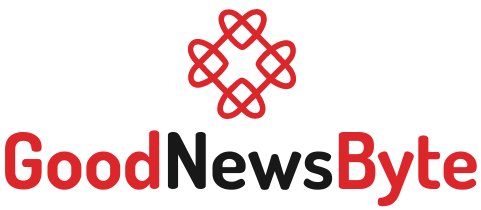Businesses and lawmakers are urging the govt. to affect a visa backlog and travel restrictions that are keeping temporary foreign workers out – leaving beach towns, resorts, camps, pools and schools scrambling.
Buena Park, CA – May 22: Amid a warm, sunny day, a private slides down a water slide at Old Man Falls after being closed because of the Coronavirus pandemic for one year and eight months at Knotts Berry Farm Soak City Waterpark
Saturday, May 22, 2021 in Buena Park, CA. Soak City partially reopened its Soak City Waterpark for season pass holders
Saturday. The water park will reopen to the general public May 29. Reservations were required also as a face covering is typically required except while within the RelaxZone, while dining at a table or bench, while waiting in line for water attractions or when experiencing water attractions or pools. All guests age 2 and older are required to wear a face covering.
Amid a warm, sunny day, a private slides down a water slide at Knotts Berry Farm Soak City Waterpark Saturday, May 22, 2021 in Buena Park, CA. Waterparks, pools, resort towns, camps and other businesses are strained this summer thanks to a shortage of foreign workers on J-1 visas.
The Dutch Soccer School summer camps are becoming to seem quite bit different this summer.
Namely, they are going to be tons less Dutch.
McDonald’s offering free menu item to Californians who get vaccine from restaurant’s pop-up clinics
Biden Makes Juneteenth a national holiday
Biden signs bill, creating Juneteenth a vacation marking end of slavery
Companies observing Juneteenth
GM to boost spending on EVs by 30% – sources
The organization, which operates high-level soccer camps in six states, is known for its Dutch-style program taught by professional Dutch soccer players who visit the U.S. annually to show at the camps and knowledge American culture.
But not one Dutch coach has been able to obtain the specified visa – called a J-1 – to be able to come and work this
summer, says Bernard Hartog, the founder and director of Dutch Soccer School. Instead, Hartog has had to scramble in recent weeks to hunt out qualified coaches within the U.S. and has needed to limit the quantity of players allowed at the camps – which also means less revenue.
It’s far from a singular situation. The J-1 program, otherwise mentioned because the Exchange Visitor Program, could also be a broad visa category that allows foreign workers to return to the U.S. for a quick period of some time to experience American life and participate in either work or study-based programs.
But applicants and thus the American businesses that employ them report extreme difficulties, with few foreigners granted the visas this year. which affects a spread of positions, including au pairs, camp counselors, researchers, teachers, doctors and interns. It also includes the Summer Work and Travel Program, which allows international college students to return to the country to work seasonal jobs at resorts, parks, pools, restaurants and summer camps.
The absence of exchange visitors this summer is threatening summer fun and thus the companies that provide it – many of which are already struggling to urge over last year, when the pandemic forced them to either dramatically reduce operations or close up entirely. Summer camps are rushing to undertake to fill open staff positions as camp dates inch closer, and thus things is straining the operations of resorts and restaurants.
The problem, they say, largely lies in an inability to secure a necessary interview at U.S. consulates around the world. Travel restrictions also remain in effect for people from 33 countries, and only certain J-1 visa holders can apply for exemptions to those bans.
The State Department has been reluctant to relax travel restrictions and visa requirements so on form the tactic easier, despite sustained pressure and proffered solutions from alliance groups and a couple of lawmakers.
Frustration over issues with the program has grown in recent months as vaccines become more widely available in some countries around the world and since the U.S. vaccination rates go up and case rates plummet.
American businesses rely each summer on the influx of J-1 visa holders to strengthen their workforces and, in many cases, add a wanted cultural exchange component to their organizations. Some 300,000 foreign nationals, the overwhelming majority of whom are under the age of 30, come to the U.S. through the program annually .
And though the most target immediately is on summer work, sponsor groups say they’re also growing increasingly concerned that teachers and other academics are getting to be unable to return to the U.S. within the autumn , leaving schools and academic programs during a lurch.
While job openings within the U.S. have reached record highs, positions filled by J-1 visa holders are often seasonal, short-term or very specific, making it difficult to hunt out American workers for the roles . The visa program, sponsors also say, is way more about cultural exchange and strengthening international ties than it’s about work opportunities.
For Dutch Soccer School, this issues with the program have meant hiring 3 times its typical number of coaches, since U.S.-based coaches – most of whom coach at the varsity level – are generally less able to travel and attend camps in several states. Hartog says they’ve also had to pay the American coaches more, because Dutch coaches are usually provided housing and food and persist with American host families. They are also available part thanks to the cultural exchange aspect – a draw obviously absent for U.S.-based coaches.
“We have had to truly spend plenty of cash to recruit higher-level coaches to exchange the Dutch coaches,” Hartog says.
They’ve also had to spend longer and resources training U.S. coaches within the Dutch coaching philosophy. Hartog remains finding out coaches for camps later within the summer, and thus the uncertainty and difficulty in staffing the camps had led him to cut camper registration by 30% and operate only 32 out of the planned 35 camps.
All of this, too, comes after the organization was only able to hold five camps last summer thanks to the coronavirus pandemic.
Still, Hartog sees no choice.
“Hard work, and it costs us extra cash – but we just got to keep our good name up, so next summer, we’ll do what we normally do,” he says.
President Joe Biden allowed a blanket, pandemic-related restriction on the admittance of certain visa holders, including J-1s, to expire at the highest of March. Still, applicants are finding it almost impossible to urge a gathering at a U.S. consulate so on get the visa.
Consulates are handling a huge backlog of visa applications thanks to coronavirus-related visa bans and significantly reduced operations thanks to the pandemic. Many consulates are also still not operating at full capacity.
The State Department says it’s prioritizing nonimmigrant visa applications from those with urgent travel needs, diplomats and mission-critical travelers, like those coming to the U.S. to help fight the pandemic. International students, exchange visitors and a couple of other temporary work visa applicants come then .
“The pandemic continues to severely impact the quantity of visas our embassies and consulates abroad are able to process. We are making significant efforts with constrained resources to securely return to pre-pandemic workload levels, but are unable to provide a specific date for when this might happen at each post,” a State Department spokesperson said.
The U.S. continues to ban the entry of most noncitizens who are traveling from 33 countries: India, Brazil, China, Iran, South Africa , the uk , Ireland and thus the 26 European countries that structure the Schengen Area. just a few J-1 visa holders – including some students, au pairs, interns in government-sponsored programs, and a couple of teachers and students – can apply for what’s mentioned as National Interest Exceptions to the travel bans.
Camp counselors and people within the Summer Work and Travel Program, however, don’t qualify for an exemption, according to the State Department.
Hartog says he’s all for staying safe and treating the pandemic seriously. But he questions why the govt. has not made it easier for vaccinated foreigners to return to the U.S. to participate within the exchange program this summer.
“If you’re vaccinated, you’re vaccinated. which i feel which may help tons of”> numerous businesses if they could have vaccinated people traveling over here and fill the roles that tons of people can’t fill with American workers,” he says.
In late April, over 500 companies and businesses that believe J-1 workers wrote to the State Department asking it to surge resources to busy consulates and waive the interview requirement for J-1 visas. The community that relies on the program experienced $1.23 billion in financial fallout thanks to the pandemic last year, the letter noted.
Then, in May, seven top congressional Democrats wrote to Secretary of State Antony Blinken and Homeland Security Secretary Alejandro Mayorkas urging the agencies to need sort of steps to hurry visa processing, including either waiving interview requirements or conducting virtual interviews with secure technology.
The lawmakers argued – as have many within the legal immigration sphere – that the State Department has the authority to undertake to to so thanks to a clause in immigration law allowing consulate officials to waive in-person visa interview requirements thanks to “unusual or emergent circumstances.”
A once-in-a-century global pandemic, they imply, certainly qualifies as “unusual or emergent.”
The State Department has not done so, and, when asked, didn’t provide any information about whether or not they were considering waiving in-person interview requirements for J-1 applicants – though consulate officials have nixed the necessity in certain specific cases where the applicant had previously obtained a J-1 visa and was seeking to participate within an equivalent program, a spokesperson said.
All J-1 visa holders must have a sponsor within the U.S. to observe them and ensure their welfare while they’re within the country. this is often often typically not an employer but rather an organization that connects employers with foreign nationals and is designated by the State Department to sponsor J-1 visitors. Over 1,500 for-profit, non-profit, government and private organizations are designated by the State Department as sponsors.
Leaders of sponsor organizations say they’re incredibly frustrated with the shortage of knowledge coming from the State Department over the problem , though for its part the State Department says it’s “continually informed and updated program sponsors.” These organizations, too, have suffered severe financial losses thanks to the pandemic and its effects on visa programs.
The situation has put private sector sponsors in “extremely tenuous existential crises,” says Jeff Laband, the chief operating officer of the center for International Career Development, which may be a J-1 program sponsor, and thus the co-president of the Association of Cultural Exchange Organizations. Sponsor programs believe fees they charge from employers or applicants.
“Sponsors are going out of business,” Laband says. “We basically have few to no applicants immediately thanks to this stranglehold the govt. itself has placed on its own programs that are managed by us. which they are not getting it – they are doing not seem to urge it.”
Sponsor organizations also say they’re frustrated at what they see as a scarcity of urgency to resolve the issues , predicated partially on an erroneous understanding of the exchange visitor program as a bit program rather than a program meant to strengthen diplomacy .
The J-1 program has its roots within the Fulbright Hays Act of 1961, otherwise mentioned because the Mutual Educational and Cultural Exchange Program. the aim of the act as written is to “increase mutual understanding between the people of the us and thus the people of other countries by means of educational and cultural exchange.”
“We’ve always been mentioned as educational and cultural programs, but overnight we were suddenly recategorized as work programs,” says Greg White, president of United Studies Inc.













